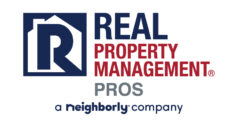The lease has been signed, the keys handed over: You now have a tenant, and your tenant has found a place to call home. As a first-time Virginia landlord, it is very important that you are familiar with your rights and responsibilities when it comes to entering, inspecting, and maintaining the property.
First, and of primary importance is the move-in inspection. Develop a detailed, room-by-room checklist, and encourage your tenant to check the premises for any damage. You may want to walk through the unit together at the point of move-in; doing this will show your tenant that you are committed to ensuring he has a safe, sound place to live, and will allow for the immediate identification of glaring issues. Leave the checklist behind when you go, but set a date by which it must be returned. When the tenant moves out and starts asking for his security deposit back, you’re going to want to consult this document to assess any damage he may have caused.
As is required by law, you, the landlord, must disclose any mold that is evident to the naked eye. If ever you smell mildew, follow your nose and try to identify the source. This is very important. If you don’t fix this problem, and your tenant finds the mold himself, he will be well within his rights to break the lease without penalty. If he chooses to stay, you must take action within five business days, action that must be followed-up with a re-inspection.
If you must enter the rented unit for any other reason, you do have the legal right to do so, but 24 hours’ notice must be given — except in the case of an emergency, or when obtaining consent is impractical. The reasonable notice requirement is likewise waived under other specific circumstances, as outlined by the Virginia Residential Landlord and Tenant Act, Sections 55-248.15, 55-248.32, 55-248.33:
- If there is a failure by the tenant to maintain materially affecting health and safety that can be remedied by repair, replacement of a damaged item, or cleaning, and the tenant fails to comply within fourteen days after written notice by the landlord specifying the breach and requesting that the tenant remedy it within that period of time, the landlord may enter the premises and cause the work to be done in a workmanlike manner.
- During any absence of the tenant in excess of seven days, the landlord may enter the dwelling unit at times reasonably necessary to protect his, the landlord’s, possessions and property.
Remember, the property may belong to you, but it has also become your tenant’s home, and in an effort toward retention and to avoid strife, enter the unit as infrequently as possible; always give ample notice; and always enter with a clear objective in mind. Just as your are entitled to ensuring the rental is clean and in good condition, he is entitled to privacy and security. At Real Property Management, we are aware that complex situations may arise between landlords and tenants, and we are here to help you with a variety of programs and services.
